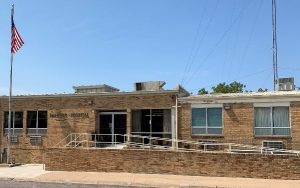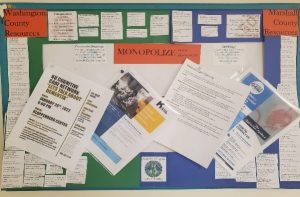Hanover Hospital (KS) Uses Patient and Family Engagement to Help Patients Find Community Resources
Hanover Hospital (KS) Uses Patient and Family Engagement to Help Patients Find Community Resources
While finishing her master’s degree in social work, Cassie Pralle, T-LMSW, learned about the importance of looking at and evaluating which resources are thriving in communities and which were lacking. When she became the social services director at Hanover Hospital in Hanover, Kan., Cassie realized she had a blank slate. As a new person looking in, she was able to see what resources were needed in the community. An interdisciplinary Patient and Family Engagement (PFE) committee was developed that included RNs, DONs, a patient representative, a social worker and an administrator. Working together, the team members could pinpoint which areas in their community needed more resources. 
The first area of note was the limited discussion in the clinic about outside resources available for patients. No specific person was responsible for discussing available resources with patients or the steps on how to utilize them. To correct this situation, a clinical referral sheet was developed that the provider could fill out. The clinical referral sheet starts the process of connecting patients with the social services director, who can explain what resources are available to them in the area. The knowledge gained from these meetings provides patients with better access to community resources, thereby decreasing stress related to obtaining assistance.
Working with providers and social services, the hospital can now address patients’ medical conditions and any financial concerns they may have. Often, reducing stress becomes a turning point in a person’s life.
The PFE committee meets monthly to discuss how things are going, who they have helped, and how the process has been working. “It’s funny to say, but the most useful resource is working as a team and communicating with each other,” Pralle said. “By working together, full patient support is achieved.”
Another area that was noted was a need in the community for education and support for those caring for loved ones with dementia/Alzheimer’s disease. Hanover Hospital, now a part of the KU Cognitive Care Network, has scheduled a community program hosted by the KU Cognitive Care Network to be held in January. This program, “Let’s Talk About Dementia,” will discuss the importance of early diagnosis and the gifts of positive communication. This educational program will be a great way to educate the community and surrounding areas while also providing resources to patients and their caregivers.

One recent win has been this hospital’s “Monopolize Your Resources” board located in the clinic. This board includes names and numbers of resources for two surrounding counties. It also highlights upcoming events in the community, insurance information, and updated COVID-19 information. Since introducing the board to the clinic, there has been an increase in direct referrals to the social services director. Some of the types of assistance given include medical assistance, prescription drug assistance and utility assistance, to name a few. The hospital’s resource board offers patients and their families their first step to receiving those resources. In an area where small town pride is prevalent, there continues to be a reluctance to ask for assistance. By offering each patient the opportunity to voice what they need in the privacy of the clinic or office setting, the hospital can provide support so their patients can obtain a higher quality of life.
The hospital intends to grow the outreach within the community and hospital. One plan is to create an admission packet that contains resource information and other talking points, including a customized Medicare discharge planning checklist for their specific community, education materials on advanced care planning and available financial resources. Even though resources are continually changing, this packet will offer the first step to accessing community resources.